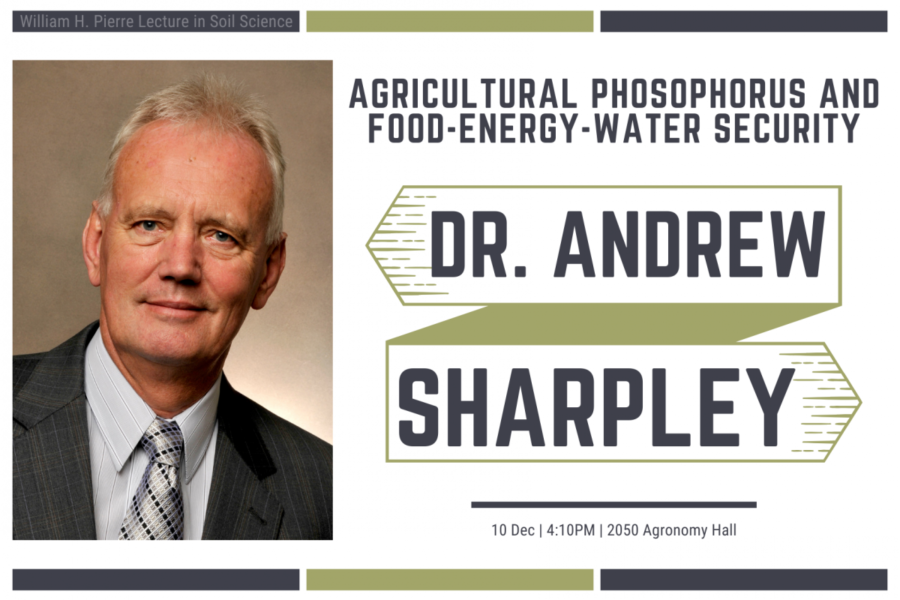Lecture to present research of food, energy and water security
Andrew Sharpley is a distinguished professor of soils and water quality at the University of Arkansas. On Tuesday, he presented a lecture on soil-plant-water systems.
December 9, 2019
Research investigating the cycling of phosphorus in soil-plant-water systems will be presented at the “Agricultural Phosphorus and Food-Energy-Water Security” lecture.
Tuesday’s speaker will be Andrew Sharpley, distinguished professor of soils and water quality at the University of Arkansas. Sharpley will visit Iowa State to discuss his research for the William H. Pierre Lecture in Soil Science, which will be at 4:10 p.m. Tuesday in 2050 Agronomy Hall.
Sharpley also was the president of the Soil Science Society of America in 2017 and 2018 chair of Alliance of Crop, Soil and Environmental Science Societies.
Sharpley is an international authority for assessing, managing and remediating the impacts agricultural management can have on soil and water resources.
The research Sharpley works with investigates the cycling of phosphorus in soil-plant-water systems in relation to productivity of soil and water quality. His research includes the management of animal manures, fertilizers and crop residues.
Sharpley also evaluates the role of stream and river sediments. According to the University of Arkansas’s website, Sharpley has authored and coauthored over 630 publications.
Sharpley received his Bachelor of Science degree in soil science and biochemistry from the University of North Wales in 1973. After he received that degree, he continued to the Massey University in New Zealand, where he completed his doctorate in soil science in 1977.
The William H. Pierre Lecture in Soil Science is named after William H. Pierre, who was an administrator, researcher and leader. Pierre had come to Iowa State as the head of the department of agronomy in 1938.
Pierre’s work included the effect of nitrogen fertilizers on the pH of soil, which was rewarded the American Society of Agronomy Nitrogen Research Award in 1931. Research that led him to the pioneer development of methodology for the determination of maximum yield of corn was focused on the effect crops have on soil acidity development.
“This lecture is a fitting reminder of Dr. Pierre’s standard of excellence,” according to the department of agronomy’s website. The guest speaker for 2018’s William H. Pierre Lecture in Soil Science was William Schlesinger from the Carey Institute of Ecosystem Studies.







